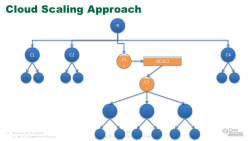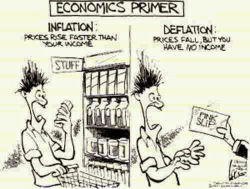
The 1970s was the start of the PC era. The 1980s saw the local networking era. The 1990s saw the rise of the Internet. The 2000s was the decade of mobility. This decade has been that of the cloud.
The 2020s will be the era of systems.
We have been talking around this for years. We talk about the Internet of Things. We talk about artificial intelligence, adding it to the cloud to create FOG computing. We talk about blockchain.
We talk about these technologies as silos, but that’s not the way technology works. As I have been writing since publishing Moore’s Lore in 2001, the exponential improvements driven by chips go into many directions. They pile atop one another, they reinforce one another like electric waves.
PCs combined chips with a user interface. Local Area Networks combined PCs with techniques derived from telephony. The Internet takes these LAN techniques global. Mobility again combined chips with new user interfaces, eliminating peripherals. The cloud era is built on open source software, standardized chips, and the same networking used in the Internet.

Forget about Bitcoin a moment. That’s just a demonstration of the underlying Blockchain technology, as Pets.com and Webvan were demonstrations of the Internet’s power. When you encrypt a general ledger, when you give that ledger the scale of a modern database, all kinds of trust processes can be automated. I’ve written elsewhere about how this might work in city contracts. Blockchain will eliminate more high-paying jobs than the self-driving car ever thought of eliminating – brokers, bankers, agents, bureaucrats of all kinds. Anyone who today works with money and contracts, checking details on transactions, or approving them, will have their jobs threatened by blockchain.
But it’s what this technology enables that is exciting, not what it destroys. Because blockchain can turn cities into systems, it can turn food into a system, and it can turn health care into a system.

Systems, of course, require scale. As chip manufacturing required vast amounts of capital thanks to Moore’s Second Law, as cloud required $1 billion per quarter as an ante into the game, so systems will require computing and software scale.
Technologies haven’t advanced faster than they have because most people, Americans especially, fear scale. We see scale as enabling 1984, thought crimes, the minority report. We write about the end of privacy. That is why we keep these technologies in silos, why we offer competing proprietary standards rather than working on one open source system, and why we talk about the Big Brother of government, or the Little Brothers of Amazon, Google and the rest.

What’s key for American technologists in the 2020s is answering this question. How do we enable systems while maintaining the controls that expand democracy, capitalism, and liberty? Once we answer that, China is toast. But we must answer that question before we can even compete.
I think we do it through open standards, allowing competitors to have vertical integration, and a system of laws that will watch the watchers as effectively as they do the watched.
You can see the early development of systems in what’s happening in health care. This is a business story as much as it is a technology story. Companies like Centene control the costs of treating chronic conditions by owning, or controlling contracts on, all the levels of care Medicare patients require, from hospitals to drugs to nursing homes. They have used this discipline during the Obamacare era to make a profit even on the narrowing margins Medicaid allows, replacing “health insurance” with “managed care.”

Now, with CVS Health buying Aetna, we see the next step in this pre-systems evolution. CVS not only owns a PBM, but does first-line care through its Minute Clinics. It can direct Aetna patients to those clinics, control drug costs through its PBM, and enter a host of new markets in chronic and acute care.
The key to all this is the Electronic Health Record. Its creation was subsidized by the 2009 stimulus, it was developed through open competition, and the winning technologies live in the cloud at companies like AthenaHealth.

Getting to the benefits of the Internet was a multi-decade process. It only started in 1994, when the commercial Web was spun. We saw the benefits within a decade, but those benefits didn’t transform society until mobile and cloud developed around them.
It will be that way with blockchain and systems. Systems are the benefit you get adding blockchain to clouds, mobility and artificial intelligence. Under blockchain, money becomes an integrated system, even with lots of banks. Health care becomes an integrated system, even with lots of providers. Food becomes a system, even with lots of farms.
Enormous amounts of work – of waste — come out of the system, creating enormous deflation but also enormous value that can be spread around. To patients, if we choose. To consumers, if we choose. Or to the favored few who own the system, if we choose to do that.










Lots of interesting information here.
Lots of interesting information here.
Interesting feature but i am worried man because Technology politics In Europeans and especially Breaking down for clouds But keep dreaming
Interesting feature but i am worried man because Technology politics In Europeans and especially Breaking down for clouds But keep dreaming